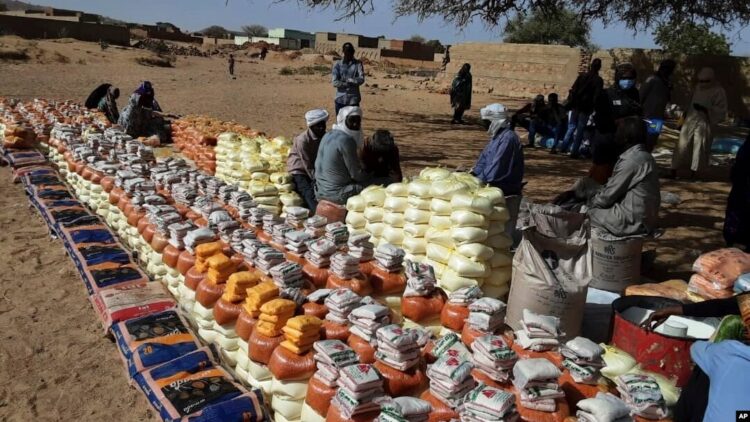A key supply route into Sudan's Darfur region, deemed at risk of famine by experts, has been cut off due to heavy rains, a World Food Programme official said on Thursday while another U.N. official said refugees had been driven to eating grass, according to Reuters.
WFP's Country Director Eddie Rowe told Reuters thousands of tons of aid are stranded at the Tina crossing on the Chad border, prompting the body to reopen talks with the army-aligned government to open an alternative, all-weather crossing further south called Adre.
Speaking after indirect humanitarian talks taking place in Geneva this week, a member of the delegation from the paramilitary Rapid Support Forces said it had reached understandings with the U.N., but not the army, to open alternative routes including Adre.
Talks are ongoing, they said.
The army, which has warned aid agencies against taking measures without its consent, did not respond to a request for comment.
The World Food Programme (WFP) has described Sudan as the world's biggest hunger crisis, with the western Darfur region most at risk as Sudan's 15-month civil war that has displaced millions and sparked ethnic violence grinds on.
The war, triggered by a plan to integrate the army and paramilitary forces in a transition to free elections, has produced waves of ethnically driven violence blamed largely on the RSF. The RSF denies harming civilians and attributes the activity to rogue actors.
The army has in the past warned aid groups against using unauthorised crossings into Darfur, which is mostly under RSF control, designating Tina as the approved route earlier this year.
But that route has become unusable as the rainy season begins.
"You have these huge rivers. As I speak now, our convoy, which is supposed to move over 2000 metric tons is stranded," Rowe told Reuters from Port Sudan. Asked on the status of the talks with the army on alternatives, he said: "It's 50/50".
WFP is now seeking clearances to move a large 70-truck convoy via a little-used, over 1000-km (620-mile) route from Port Sudan to Darfur which Rowe said will involve crossing the battle lines of both the Sudan Armed Forces, the Rapid Support Forces and various militias.
He added that this mostly desert route had worked in the past but outside of the rainy season and that the last journey took weeks and was "fraught with a lot of challenges".
The U.S. on Thursday pledged an additional $203 million to the U.N.'s response in the country, which Rowe said remains underfunded.
In a separate interview, Mona Rishmawi, a member of the U.N. Fact-Finding Mission on Sudan, told Reuters that she had met Darfur refugees in Chad who told her stories of escaping with virtually no water and eating grass along the route. "There's no doubt that people are starving," she said.









